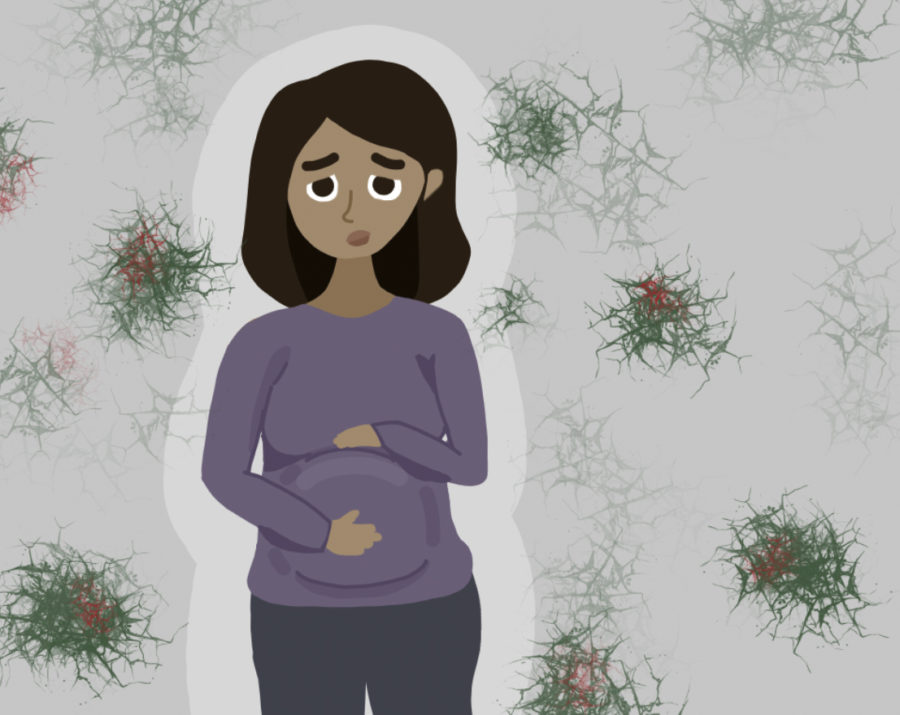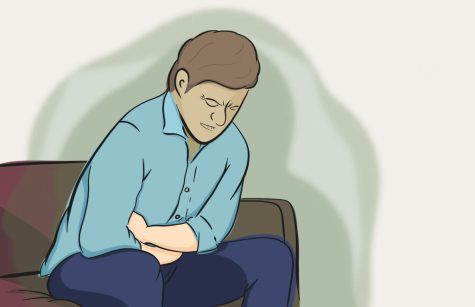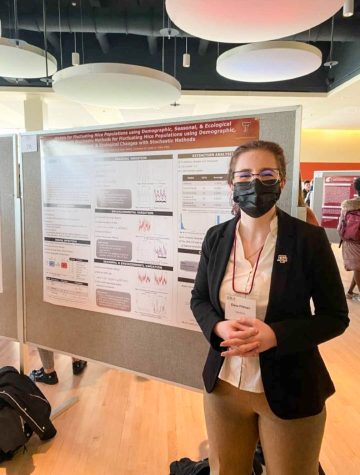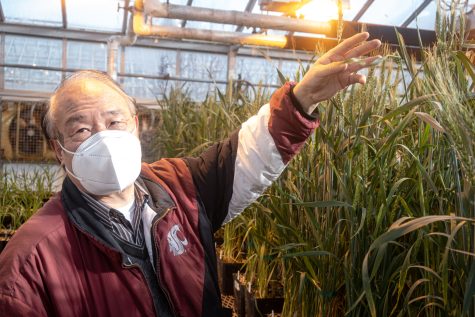Pregnant women more stressed during pandemic
Many women felt stress from leaving family out of ultrasounds, delivery
LAUREN PETTIT | DAILY EVERGREEN ILLUSTRATION
High levels of stress can cause early labor, so babies do not fully develop. Pregnant women feel they have lost the support systems they used to have, such as new parent support groups.
April 8, 2021
Pregnant women felt more stressed during the pandemic because of their fear of contracting COVID-19 as well as normal stress brought about by pregnancy, WSU researchers found.
High levels of stress can cause early labor, which does not allow the baby to fully develop, WSU associate professor Erica Crespi said.
Researchers assessed pregnant women’s causes of stress. They looked at the number of stressors as well as the concerns these women felt that caused their stress, said Celestina Barbosa-Leiker, lead author of the study and WSU associate nursing professor.
Common stressors that pregnant women have started experiencing since the pandemic began include the possibility that they or their baby could get COVID-19 or come into close contact with someone who has the disease, Barbosa-Leiker said.
Safety guidelines were an added stress because pregnant women felt guilty when family members missed key moments, such as ultrasounds or delivery of the baby, she said.
Prior to the pandemic, women of color and women with lower incomes have had worse infant and maternal health, Barbosa-Leiker said. They have more stressors than white women, which contribute to worse birth outcomes.
“Women of color, compared to white women, had more financial stress and lower levels of coping support,” she said.
Researchers studied the coping mechanisms that pregnant women practiced during the pandemic, Barbosa-Leiker said. Some support systems they feel they have lost include birthing classes, new parent support groups and lactation consultants.
The classes and groups can be done over Zoom, but many women do not feel that online classes are adequate replacements for previous support systems, she said.
The study participants were pregnant or postpartum. The researchers gave a survey that asked 125 pregnant women and 37 postpartum women questions to understand concerns that could cause stress, she said.
“The researchers wanted to analyze pregnant women because stress can impact fetal development and therefore impact future generations,” Barbosa-Leiker said.
The study also analyzed postpartum women to observe if pandemic stressors were consistent before and after pregnancy, Barbosa-Leiker said.
By better understanding the stressors brought about by the pandemic, further research will be able to decrease stressors during pregnancy, even after the pandemic, Crespi said.
One stressor for postpartum women was the doctor visits necessary to maintain good health for the newborn. These visits occur in hospitals where people are likely to have COVID-19, Barbosa-Leiker said.
A major concern for participants was the unknowns of COVID-19. The women wanted information about the disease, especially in the early stages of quarantine when there was little information and few resources, Crespi said.
The pandemic unknowns along with the unknowns of giving birth combined to create additional stress for these women, she said.
The beginning of quarantine consisted of panic buyers grabbing everything on the shelves, leaving them empty. Pregnant women had a hard time securing healthy food at that time, Barbosa-Leiker said. If pregnant women are not consuming healthy food, their babies will not be getting the nutrients necessary for healthy growth.
The lack of nutritional food in stores last March and April negatively impacted the health of women who later became pregnant. The nutritional state of a woman’s body before pregnancy can be influential to the length of the development time of a baby, Crespi said.
In the first few months of quarantine, postpartum women had difficulty finding formula, diapers and cleaning supplies, Barbosa-Leiker said. The lack of necessary nutrients and items contributed to the overall stress these women felt.
Barbosa-Leiker engages community members with pregnancy talks to teach strategies, such as following safety guidelines, to lower stress for pregnant women during the pandemic.
“Check in on your pregnant colleagues, friends and family members, and do not pressure them into seeing the baby,” she said.





















